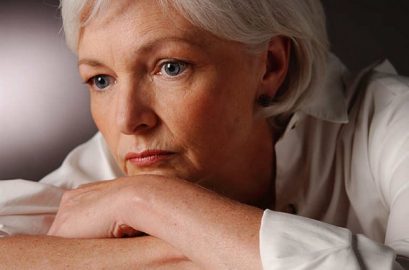
In the earlier times, endometriosis was considered the disease of women in reproductive age. But the latest statistics shows that it occurs more and more often in women during their menopause. Hardly it is the change of the tendency, perhaps such data are connected with the improvement of the diagnostic methods. In the menopausal period, it is very difficult to diagnose endometriosis because of the rebuilding of hormonal systems and multiple changes in her organism. The earlier the disease is diagnosed, the easier it will be endometriosis treatment. Menopausal endometriosis is especially dangerous because the disease in this period may have serious consequences for a woman.
Endometriosis is a pathologic division of the endometrial cells that cause its growth outside the uterus. It is more character for the reproductive age. Why does it occur during a woman’s menopause? There are several reasons:
- The hormonal misbalance with the estrogen predominance. It seems to be impossible because of the oppression of the ovary work. Still the misbalance in the menopausal age can be different and sometimes the estrogen production is increased.
- If the female sex hormone is not enough, the organism tries to restore the balance with the help of lipid tissues in the organism. This is our fat. Still the fat is not able to produce progesterone that helps balance the estrogen’s activity. As the result, the endometrial tissues begin their abnormal growth.
- The dysfunction of the sex gland causes disorder that makes even the minimal amount of the estrogens cause the boost of the uterine cells growth.
- Old infectious diseases. The absence of timely treatment, the neglected forms of inflammations overwhelm the reproductive system. They change the endometrial structure and a woman will never notice that until the menopause comes.
- Surgical intrusions – operations on the sex organs, multiple abortions. They leave scar tissue on the uterine inner surface that create a basis for the abnormal endometrial growth.
- Genetic issues. This reason is not researched and proven for sure, but it takes place in medical diagnostics. It concerns not only menopausal endometriosis, but also other gynecological diseases.
The main symptoms of the menopausal endometriosis are:
- Pain (more in the morning, less in the evening).
- Discharge (bloody, slightly bloody or just heavy).
- Non-systemic feeling of dizziness.
- Fatigue (even more than a usual menopausal fatigue).
The menopausal endometriosis may be genital of extragenital. In the case of extragental endometriosis, the pathologic cell growth spreads over other organs of the abdomen or even chest. The consequences may be very serious. That is why the timely and scrupulous doagnostics of the organism is a very important thing for a woman in her menopause. This will help diagnose and treat many dangerous diseases she is especially vulnerable to in the period of the organism rebuilding.





Follow Me